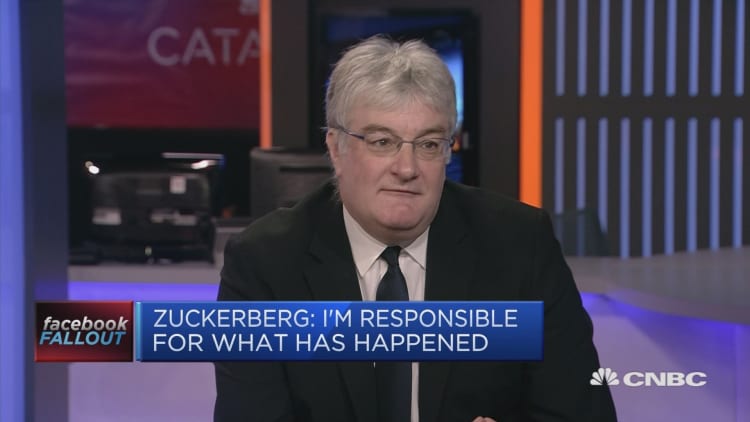Stock markets have had a bumpy first quarter, and global equity analysts at Citigroup believe that this is only set to continue.
Fears of a sudden uptick in inflation, a potential trade war and possible new regulations on the tech sector have sent stock prices lower since the start of 2018. Analysts at Citi said Monday that it's likely that there will be bigger sell-offs ahead — but believes they would opportunities to pick up some bargains.
"Our Global Equity Quarterly recommends buying equities on the bigger dips," the bank said in a note Monday. "Our latest round of forecasts imply a rise in global equity markets of about 8 percent to the end of the year, led by Europe with about 13 percent," the bank added.
The forecasts are based on expectations of higher economic growth across the world and increased room for investments from several companies due to tax cuts in the U.S. However, the bank warned that risks are rising due to increased market volatility and higher interest rates — these could lower the margins that companies make by increasing their debt repayments and thus send stocks lower. A slowdown in global growth was also mentioned as a risk to Citi's outlook.

Nonetheless, the analysts still see upside for equity markets as these haven't yet reached a bear market — the moment when share prices move lower and are projected to continue falling.
Stocks "entered phase 3 of the credit/equity clock; the period towards the end of the cycle when credit spreads start to widen, but equity indices continue rise," Citigroup said.
"Thus, we still see upside for equity markets, but we caution that higher volatility and bigger corrections are likely," it said. "The conclusion is to judiciously buy on dips," the team said.
Sell-offs are often used as a buying opportunity. Investors use them to buy shares of companies that they have been tracking but felt that until that point the shares were too expensive to purchase. Not every market participant is as confident as Citi on a rise for stocks this year, and some have warned on a longer trend downwards for equities.
Since the 2008 financial crisis, central banks around the world have pumped trillions of dollars into the global economy to boost lending and encourage growth. This massive market intervention has led to a sharp increase in stock prices. As a result, some analysts believe that valuations have become way too high.
"We had a policy response to the global financial crisis (and) at that point stocks were cheap and they had an enormous tailwind behind them in terms of fiscal support," Paul Gambles, the managing director at Thailand-based advisory firm MBMG Group, told CNBC's "Squawk Box Europe" last week.
"This is quite a dangerous situation and it is creating a bubble, and that bubble has just got bigger and bigger and bigger … There isn't any doubt now (that) in valuation terms we're in epic bubble proportions, probably the biggest bubble of all time," he said.
Unsynchronized global growth, tighter monetary policy and "chaos" surrounding U.S. politics with the administration's tougher stance on global trade could mean that the valuation bubble could "actually be pricked," he added.


